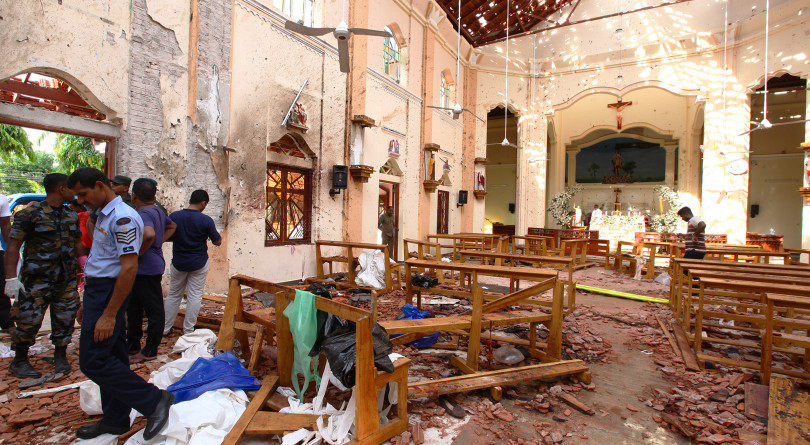The attacks in Sri Lanka that were carried by the National Thowheed Jamath ripped through three churches and luxury hotels killing more than 300 and wounded more than 500 people. The preliminary investigation into the attacks had found the involvement of females in the attacks. The Sri Lankan government, after an investigation, found out that there were many women involved in the Easter Sunday attacks and had escaped wearing Burqa. The interrogation of the suspects and other evidences pointed out that the women who were involved in the attack could have gotten away easily because of the burqa.
The Daily Mirror reported that the ban on burqa was initiated on security concerns and will be implemented after the issue is discussed with the mosque authorities. The Daily mirror reported, “The government, he said (source), is planning to implement the move in consultation with the mosque authorities and on Monday several ministers had spoken to President Maithripala Sirisena on the matter,”
Defence sources said that the number of women involved in the attack in Dematagoda too escaped with help of the burqa worn by them. NJT jihadist group attacked important tourist luxury hotels which led to the killing of 30 foreign nationals. These attacks caused high causalities and loss of lives. 40 suspects including a van driver were allegedly used by suicide bombers, have been arrested in connection with the multiple attacks that took place in Sri Lanka.
The ban on Burqa is considered necessary for keeping the security issues in mind. The investigation has pointed to the fact that the attire made the women culprits of the attack escape easily. There was a good number of women jihadists who were involved in the attack.
It is necessary to understand the fact that the Burqa was never part of the Sri Lankan culture. Sri Lanka initially had a broad and open community of the Islamic culture. The change in Islam in Sri Lanka took another turn, after the sectarian tensions following the Civil War. The reflexive nature of the religion died out after the extremism in the faith started gaining strong grounds. This change was remarkably observed after the Gulf War. Those who migrated to Gulf States for work came back with sterner strain of Islam. This is how extremist established a more rigid Islamic regime in Sri Lanka.
The rigidity and inflexible nature of Islamic practice was exploited by the jihadist to carry out their heinous crime against humanity. The Sri Lankan government keeping security issues in mind is compelled to implement the plan. Countries like Chad, China (Xinjiang also), Austria, France, Belgium has also enacted a ban on Burqa.
